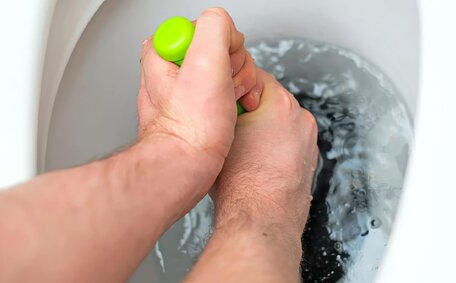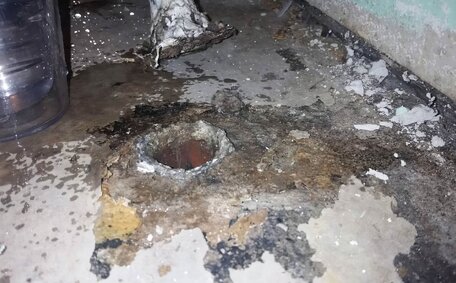Introduction to Hot Water System Regulations in Australia
Hot water systems are a crucial home feature in Australia, providing essential heated water for daily activities such as bathing and cleaning. To address hot water safety issues and support sustainable energy use, Australia has regulations around hot water heater installation, temperature control, and efficiency.
Yet, the risk of scalding from hot water is a significant concern, especially for children, the elderly, and those with sensitive skin.
Understanding Scalding Risks and Water Temperature Limits
Excessively hot tap water is a significant safety hazard, with vulnerable groups such as children and the elderly being at greater risk. Young children have thinner, more delicate skin, requiring careful temperature control, and seniors often have impeded mobility, which can prevent speedy avoidance of hot water.
Australian regulations set a maximum water temperature of 50 degrees Celsius at showerheads and taps, ensuring a safe guard against scalding. Aged care facilities and other institutions caring for at-risk individuals have an even lower maximum of 45°C. Exceeding these temperatures results in severe scalding, potentially causing third-degree burns in just 1 second at 68°C.
Implementing measures to regulate water temperature is essential. Thermostatic mixing valves automatically blend hot water with cold water to ensure delivery temperatures remain below hazardous levels, while tempering valves preset a maximum temperature the system cannot exceed.
Adhering to new hot water system regulations is akin to taking common-sense safety measures, such as keeping the bathroom door closed to avoid hazards. Advising on and installing temperature control devices with every new system is crucial for enhanced safety.
Key Australian Standards for Hot Water Systems
Aligning your hot water systems with national health, safety, and sustainability standards is critical, and requires compliance with the Australian code, AS/NZS 3500.
A key stipulation for storage systems, particularly those with a hot water tank, is heating water to at least 60°C to prevent Legionella bacteria growth. However, delivery temperatures at outlets must be capped to ensure water is both ample and safe for use, adhering to scalding prevention guidelines through the use of thermostatic mixing valve systems.
Tempering valve devices, thermostatic mixing valves and other temperature limiting instruments are mandatory to align storage and delivery temperatures with regulations.
Beyond national standards, additional building codes at the state level related to water tank installations may also apply. For instance, in South Australia, new hot water systems must include rainwater tanks connected to toilet flush systems. Ensuring compliance with system installation regulations and checking local requirements is vital for your new system to meet all necessary standards.
Requirements for Tempering Valves and Thermostatic Mixing Valves
Australian plumbing regulations mandate installation of temperature control devices on all new and replacement hot water systems from 2022 onwards.
Tempering and thermostatic mixing valves, both requiring installation by a licensed plumber, automatically blend hot water with cold, ensuring a safe delivery temperature of 50°C to prevent scalding. However, these devices operate differently:
- Tempering valves, which can set a maximum temperature to regulate water temperature, enable you to run cold water and turn hot water down by presetting a level that cannot be exceeded. They are often integrated into systems during manufacturing.
- Thermostatic mixing valves, which must be professionally installed, continually monitor outgoing water temperature, dynamically adjusting blending to maintain a safe level.
When installing either device, which can turn hot water to safer temperatures, certified plumbers must:
- Position as close as possible to hot water outlets for optimal response and protection.
- Choose suitable pressure, flow rate and temperature ratings to suit the hot water system.
- Test water temperatures after installation to validate safe delivery per regulations.
As qualified plumbers, Dural Plumbing professionally installs approved tempering and mixing valves on all new systems, supporting safety for your family. Contact us for more information or advice regarding your hot water system requirements.
Energy Efficiency Criteria for New and Replacement Systems
With climate change and rising energy costs key concerns, Australian plumbing codes mandate minimum efficiency ratings for new and replacement hot water systems.
Essential criteria for an electric hot water system, in line with renewable energy standards, comprise:
- Electric or solar heat pump systems must have a minimum of 3.5 stars under Australias MEPS (Minimum Energy Performance Standards).
- Gas storage water heaters must have at least a 5-star efficiency rating.
- Instantaneous gas water heaters must have a minimum 6-star efficiency rating.
Modern, energy-efficient electric hot water systems complying with technology certificates STCs can reduce a household’s greenhouse gas emissions by up to 60% and offer substantial long-term savings on energy costs.
Our expertise enables us to assess whether your existing system meets current efficiency regulations and to advise accordingly. If it doesn’t, we recommend replacement options that fit your home, family and budget while ensuring compliance.
Upgrading to a higher efficiency system benefits the environment and can save money by reducing hot water costs. Contact our team to discuss your replacement hot water system options.
Compliance and Penalties for Non-Compliance
Failure to comply with hot water system new regulations presents major safety and financial risks that homeowners cannot overlook.
Installing non-approved heat pump hot water systems or making unauthorised modifications leaves families, including children and the elderly, vulnerable to accidental scalding. It also threatens the prospect of thousand-dollar penalties for non-compliant hot water system installation under legislation like the Plumbing and Drainage Act 2018.
It’s vital that certified, licensed professionals carry out installations to ensure compliance with all standards. We stay fully versed in current regulations across efficiency, temperature control, water quality and more.
Upgrading outdated, non-compliant systems with Dural Plumbing avoids violations while protecting the safety, health and comfort of your family.
Choosing and Installing a Compliant Hot Water System
Choosing the right hot water system entails recognising there are different types of systems available, while also considering safety, efficiency, costs, and compliance obligations. As experienced Dural plumbers, we guide you through the different types of options to find the best solution for your needs.
We evaluate factors including your hot water heater preferences:
- Household size and hot water usage, including preferences for continuous flow systems
- Available energy sources - electricity, natural gas, solar
- Upfront system costs versus long-term savings
- Space requirements - tank versus instantaneous water heaters
Technology types for solar hot water systems include:
- Electric heat pump
- Solar hot water with electric or gas boosting
- Gas storage
- Gas instantaneous
We ascertain that every installed system meets the mandatory energy rating of 3.5-6 stars, as stipulated by small-scale technology certificates (STCs), and includes tempering valves to safeguard against scalding.
Regular Maintenance for Continued Safety and Efficiency
Regular maintenance is vital for hot water storage tank components to remain compliant, efficient, and safe throughout their lifespan. As parts wear or sediment build-up occurs, performance drops while running costs and risks increase.
We recommend homeowners schedule annual hot water system maintenance checks covering tasks like:
- Inspecting and servicing temperature control valves to prevent failure
- Checking and adjusting hot water temperature levels to adhere to regulations
- Clearing built-up sediment inside tanks and pipes
- Testing and replacing anodes to minimise corrosion
- Sanitising storage tanks to prevent Legionella bacteria growth
Assessing factors impacting energy efficiency, such as insulation and system size, is imperative to accommodate varying hot water demands.
Expert standard and preventative maintenance safeguard your hot water system’s reliability, safety, and performance. Contact us to schedule annual servicing giving you peace of mind your system meets requirements.
Frequently Asked Questions on Hot Water Regulations
Hot water regulations aim to ensure safety, efficiency, and reliability. Here we answer common questions on meeting Australian standards:
What temperature should my hot water system be set to?
While hot water storage tanks must maintain water at least 60°C to prevent bacteria growth, taps should restrict water to safe levels. However, the delivery temperatures at the hot tap and showers must not exceed 50°C to prevent scalding.
Do all new or replacement systems need efficiency ratings?
Yes, minimum legal efficiency ratings are either 3.5 stars for electrical (solar/heat pump) or 5-6 stars for gas systems.
What devices control water temperature?
Tempering valves and thermostatic mixing valves automatically blend hot tank water with cold to keep the water hot yet at safe delivery temperatures.
Who can install or service these devices?
A qualified plumber can size, install, and maintain temperature control devices, ensuring adherence to Australian Standards.
What are the penalties for non-compliant installations?
Fines of thousands of dollars may apply for unlicensed or non-compliant work related to all hot water installations under legislation like the Plumbing and Drainage Act.
For advice on hot water regulations tailored to your home, reach out to our team at Dural Plumbing.
Conclusion: Ensuring Safety and Compliance in Your Home
Installing and maintaining a hot water system that adheres to Australian regulations is crucial for mitigating the most common scalding risks and ensuring the health, safety, and comfort of your household.
Seeking qualified, licenced plumbers like Dural Plumbing guarantees all hot water systems meet necessary compliance standards around efficiency, temperature control, and sustainability. We stay fully updated on state and federal requirements to advise and install optimal solutions for your home.
Upgrading outdated systems, adding temperature modulation devices, and scheduling maintenance checks gives you peace of mind your hot water supply remains safe while avoiding violations. Trust our decades of expertise to help navigate regulations and protect your family.
Still have questions? Contact our team on 1300 349 338 or email us to discuss your needs. As trusted Dural plumbers, we are here to ensure the safety, health and comfort of your household.






